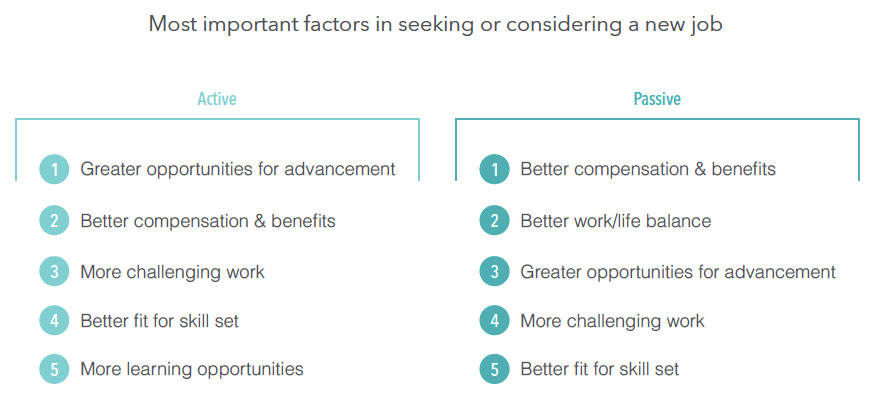Defining Importance: What Makes a Job Truly Vital?
When considering the question of what is the most important job in the world, it’s essential to define what makes a job truly vital. Importance can be subjective and vary depending on individual perspectives and values. However, there are certain factors that contribute to a job’s significance, including its impact on human life, the economy, and the environment.
Jobs that directly affect human life, such as healthcare professionals, emergency responders, and social workers, are often considered crucial. These professionals provide essential services that ensure the well-being and safety of individuals and communities. Their work has a direct impact on people’s lives, making them vital to the functioning of society.
In addition to human life, jobs that contribute to the economy and environment are also essential. For instance, farmers and agricultural workers play a critical role in producing food, which is a fundamental human need. Similarly, jobs in renewable energy and sustainability are vital for mitigating climate change and ensuring a livable future.
Moreover, the importance of a job can also be measured by its impact on the economy. Jobs that create employment opportunities, stimulate economic growth, and contribute to the GDP are often considered vital. For example, jobs in the technology sector, such as software developers and data scientists, are crucial for driving innovation and economic progress.
Ultimately, defining the most important job in the world is a complex task that requires considering multiple factors. While different people may have different opinions on what makes a job crucial, it’s clear that certain professions have a significant impact on human life, the economy, and the environment. By understanding these factors, we can better appreciate the importance of various jobs and the role they play in shaping our world.
The Unsung Heroes: Jobs That Keep Our World Running Smoothly
While some jobs may receive more recognition than others, there are many professions that are essential to our daily lives, yet often go unnoticed. These unsung heroes work tirelessly behind the scenes to ensure that our communities function smoothly and efficiently.
Sanitation workers, for example, play a critical role in maintaining public health and safety. They collect and dispose of waste, keeping our streets and neighborhoods clean and free from disease. Without their efforts, our communities would quickly become unhealthy and unsanitary.
Farmers and agricultural workers are another group of unsung heroes. They work tirelessly to produce the food that we eat, often in challenging weather conditions and for long hours. Their labor is essential to feeding our populations and keeping our economies strong.
Healthcare professionals, including nurses, doctors, and medical assistants, are also vital to our well-being. They provide essential medical care, often in high-pressure situations, and work to prevent the spread of disease. Their dedication and expertise are crucial to maintaining public health.
Other critical jobs that often go unnoticed include teachers, who educate and inspire future generations; emergency responders, who risk their lives to save others; and social workers, who provide essential support services to vulnerable populations. These professionals make a significant impact on our communities, yet often receive little recognition for their efforts.
When considering what is the most important job in the world, it’s essential to recognize the value and contributions of these unsung heroes. Their work may not always be visible, but it is crucial to the functioning of our societies. By acknowledging and appreciating their efforts, we can work to create a more equitable and sustainable world.
How to Identify the Most Critical Jobs in the World
Evaluating the importance of different jobs can be a complex task, as it depends on various factors such as job requirements, work environment, and societal impact. To identify the most critical jobs in the world, it’s essential to consider the following framework:
Firstly, consider the job requirements, including the skills, knowledge, and qualifications needed to perform the job. Critical jobs often require specialized training, expertise, and experience. For instance, jobs in the medical field, such as surgeons and anesthesiologists, require extensive education and training.
Secondly, examine the work environment and the impact of the job on society. Critical jobs often involve working in high-pressure situations, making life-or-death decisions, or working in challenging environments. For example, emergency responders, such as firefighters and paramedics, work in high-stress environments and make critical decisions that affect people’s lives.
Thirdly, assess the societal impact of the job, including its contribution to the economy, public health, and community development. Critical jobs often have a significant impact on the well-being of society, such as jobs in education, healthcare, and social work.
To research and analyze various professions, consider the following tips:
Use online resources, such as job boards and career websites, to gather information about different jobs and their requirements.
Conduct interviews with professionals in critical jobs to gain insights into their experiences and challenges.
Analyze data and statistics on job market trends, employment rates, and economic impact to understand the significance of different jobs.
By using this framework and considering these factors, you can gain a deeper understanding of what makes a job truly vital and identify the most critical jobs in the world. When considering what is the most important job in the world, it’s essential to evaluate the importance of different professions and recognize the value and contributions of critical jobs.
The Role of Technology in Shaping the Most Important Jobs
Technological advancements have revolutionized the job market, creating new opportunities and transforming existing ones. The impact of technology on critical jobs has been significant, with automation and artificial intelligence changing the way professionals work. When considering what is the most important job in the world, it’s essential to examine the role of technology in shaping these professions.
One of the most significant effects of technology on critical jobs has been the creation of new job opportunities. For example, the rise of renewable energy has led to the development of new careers in solar and wind energy engineering. Similarly, advances in healthcare technology have created new roles in medical research and development.
However, technology has also transformed existing jobs, making some tasks more efficient and others obsolete. Automation has had a significant impact on industries such as manufacturing, where machines have replaced human workers in many roles. While this has increased productivity, it has also led to job losses and changes in the nature of work.
The skills required for future jobs are also changing, with a greater emphasis on technical skills, problem-solving, and adaptability. Professionals in critical jobs must be able to work with technology, analyze data, and make informed decisions. This requires a high level of education and training, as well as continuous learning and professional development.
Some of the most in-demand skills in critical jobs include data analysis, programming, and digital literacy. Professionals in these fields must be able to work with complex data sets, develop algorithms, and communicate effectively with stakeholders. These skills are essential for success in critical jobs and will continue to be in high demand in the future.
As technology continues to evolve, it’s essential to consider its impact on critical jobs and the skills required for success. By understanding the role of technology in shaping these professions, we can better prepare professionals for the challenges and opportunities of the future.
Meet the Professionals: Real-Life Examples of Critical Jobs
Behind every critical job, there are dedicated professionals who work tirelessly to make a difference in the world. Let’s meet some of these individuals and hear their stories.
Dr. Maria Hernandez is a pediatrician who works in a busy hospital in a large city. She is responsible for diagnosing and treating illnesses in children, from common colds to life-threatening diseases. Dr. Hernandez says, “As a pediatrician, I have the privilege of making a difference in the lives of children and their families. It’s a challenging job, but it’s also incredibly rewarding.”
John Lee is a teacher who works in a high school in a rural area. He teaches mathematics and science to students who may not have access to these subjects otherwise. John says, “As a teacher, I have the opportunity to inspire and educate the next generation of leaders. It’s a tough job, but it’s also incredibly fulfilling.”
Emily Chen is an emergency responder who works in a fire department in a major city. She is responsible for responding to emergency calls and providing medical care to those in need. Emily says, “As an emergency responder, I have the privilege of making a difference in people’s lives during their most vulnerable moments. It’s a challenging job, but it’s also incredibly rewarding.”
These professionals, and many others like them, are the backbone of our society. They work in critical jobs that require dedication, hard work, and a commitment to making a difference. When considering what is the most important job in the world, it’s essential to recognize the value and contributions of these individuals.
By sharing their stories, we can gain a deeper understanding of the challenges and rewards of critical jobs. We can also appreciate the importance of these professions and the impact they have on our lives.
The Economic and Social Benefits of Critical Jobs
Critical jobs have a significant impact on the economy and society as a whole. These jobs contribute to the overall well-being of communities, drive economic growth, and create opportunities for individuals to thrive.
One of the most significant economic benefits of critical jobs is their contribution to GDP. Jobs in industries such as healthcare, education, and infrastructure development are essential to the functioning of a country’s economy. These jobs create a ripple effect, stimulating economic growth and creating new opportunities for businesses and individuals.
Critical jobs also play a crucial role in job creation. For example, jobs in the renewable energy sector have created new opportunities for workers in manufacturing, installation, and maintenance. Similarly, jobs in the technology sector have created new opportunities for software developers, data analysts, and cybersecurity experts.
In addition to their economic benefits, critical jobs also have a significant social impact. Jobs in education, healthcare, and social work are essential to the well-being of individuals and communities. These jobs provide critical services that improve the quality of life for people around the world.
When considering what is the most important job in the world, it’s essential to examine the economic and social benefits of critical jobs. These jobs are the backbone of our society, providing essential services and driving economic growth. By recognizing the value and contributions of these jobs, we can work to create a more equitable and sustainable world.
The impact of critical jobs on local and global economies cannot be overstated. These jobs create a ripple effect, stimulating economic growth and creating new opportunities for businesses and individuals. By investing in critical jobs, we can create a more prosperous and sustainable future for all.
Preparing for a Career in a Critical Job: Education and Training
Preparing for a career in a critical job requires a combination of education, training, and dedication. These jobs often require specialized skills and knowledge, and professionals in these fields must be committed to continuous learning and professional development.
Education and training requirements for critical jobs vary depending on the profession. For example, doctors and nurses require extensive education and training in medical school and clinical settings. Teachers require a bachelor’s degree in education and often pursue advanced degrees in their subject area.
In addition to formal education, critical jobs often require specialized training and certifications. For example, emergency responders must complete training programs in emergency medical services and firefighting. IT professionals must obtain certifications in programming languages and software development.
Continuous learning and professional development are essential for professionals in critical jobs. These jobs are often rapidly evolving, and professionals must stay up-to-date with the latest technologies, techniques, and best practices. This requires a commitment to ongoing education and training, as well as a willingness to adapt to changing circumstances.
When considering what is the most important job in the world, it’s essential to recognize the importance of education and training in preparing professionals for these critical roles. By investing in education and training, we can ensure that professionals in these fields have the skills and knowledge they need to make a meaningful impact.
Preparing for a career in a critical job requires a long-term commitment to education and training. Professionals in these fields must be dedicated to continuous learning and professional development, and must be willing to adapt to changing circumstances. By doing so, they can make a meaningful impact in their chosen profession and contribute to the greater good.
The Future of Critical Jobs: Emerging Trends and Challenges
The world is undergoing rapid changes, and critical jobs are no exception. Emerging trends and challenges are transforming the way professionals in these fields work, and it’s essential to understand these shifts to prepare for the future. One of the most significant challenges facing critical jobs is the impact of climate change. As the world grapples with rising temperatures, more frequent natural disasters, and unpredictable weather patterns, professionals in critical jobs must adapt to these changes. For instance, healthcare professionals must be prepared to handle the increased burden of climate-related illnesses, while emergency responders must develop strategies to respond to more frequent natural disasters.
Another significant trend affecting critical jobs is the rise of pandemics. The COVID-19 pandemic has highlighted the importance of healthcare professionals, scientists, and emergency responders in responding to global health crises. As the world becomes increasingly interconnected, the risk of pandemics spreading quickly across borders grows. Critical jobs must be equipped to handle these challenges, and professionals in these fields must stay up-to-date with the latest research, technologies, and strategies to combat pandemics.
Demographic shifts are also transforming the landscape of critical jobs. As populations age, healthcare professionals must be prepared to handle the increased demand for age-related care. Similarly, as urbanization continues to rise, critical jobs such as sanitation workers, teachers, and emergency responders must adapt to the unique challenges of urban environments.
Technological advancements are also changing the nature of critical jobs. Automation, artificial intelligence, and data analytics are transforming industries such as healthcare, education, and emergency response. While these technologies bring many benefits, they also require professionals in critical jobs to develop new skills and adapt to new ways of working.
So, what is the most important job in the world? The answer is complex, as different jobs are critical in different contexts. However, one thing is clear: critical jobs are essential to the well-being of society, and professionals in these fields must be prepared to adapt to emerging trends and challenges. By understanding these shifts and developing the skills and strategies needed to respond, we can ensure that critical jobs continue to thrive and make a meaningful impact in the years to come.






